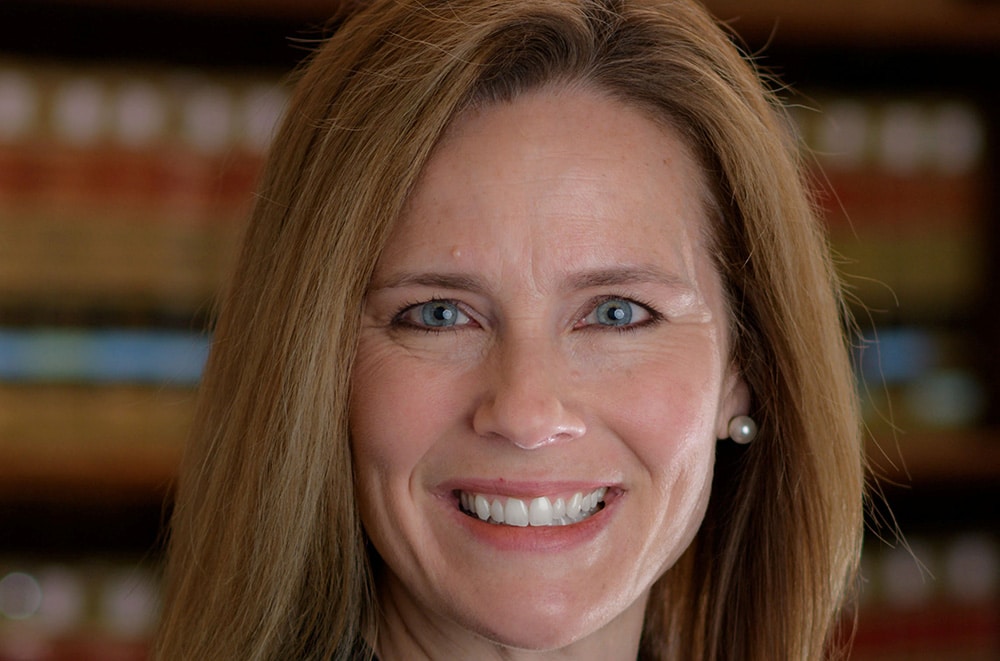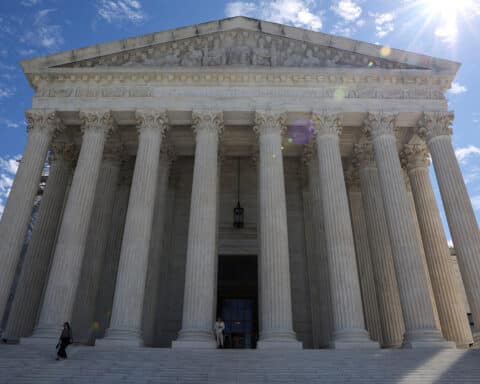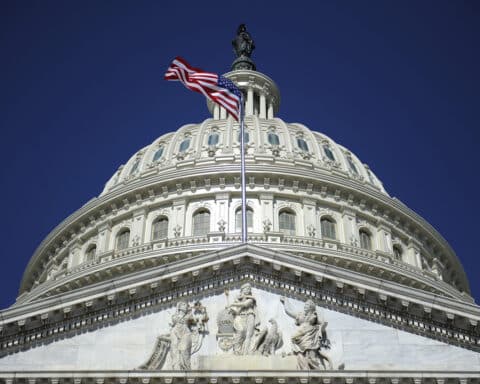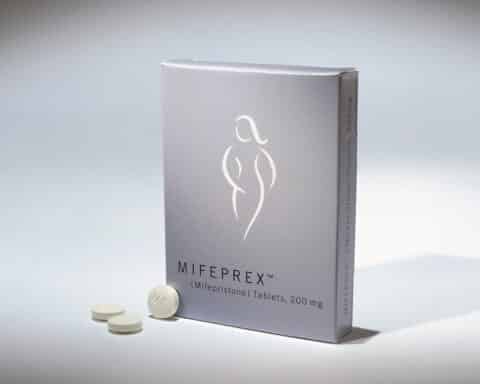As soon as the news broke about Justice Anthony Kennedy retiring from the Supreme Court, my social-media feeds were both unhinged and filled with coffee cups.
During her federal appeals court hearings before the Senate Judiciary Committee, now-Judge Amy Coney Barrett was somewhat infamously grilled by California senator Dianne Feinstein. “The dogma lives loudly within you,” the Democrat declared at one point, unintentionally complimenting her and the way the mother of seven strives to live her Catholic faith in an integrated way.
I missed my opportunity at the time to buy some of the Catholic swag that popped up on customization sites, items such as mugs and T-shirts designed with some variation of “The Dogma Lives Loudly within Me.” But Kennedy’s retirement became an opportunity to reconsider. I went back and forth about how it seemed a failure of my civic duty not to be drinking out of these mugs already as Judge Barrett, a professor at the University of Notre Dame, became an early favorite with many of the conservative Catholics – for lack of a better way to describe them — whom I follow on Twitter and Facebook.
My colleague Ramesh Ponnuru immediately wrote a column for Bloomberg urging Donald Trump to pick her for Kennedy’s replacement to add some diversity to the court, among other things. Unlike everyone on the court, she didn’t go to Harvard or Yale. And unlike the other women on the court, she brings a very different prospective about innocent human life and family. While she made clear during the hearings that “it is never appropriate for a judge to apply their personal convictions, whether it derives from faith or personal conviction,” it is also clear what her life is about: faith, family and law.
Part of what held me back from declarations that the dogma lives loudly within me, or within Catholics more broadly, was the question: But does it really? For most of us? In a way the world can see?
The same day Justice Kennedy retired, the meditation in the monthly Magnificat stopped me in my tracks. Dominican Father Gerald Vann was explaining the hard work of holiness, of truly doing the will of the Father. It begins with words like “fierce” and “unrelenting” to describe the rigor of the saints “in their struggle to expropriate the self, to kill the false self that wants to be its own master and refuses to be the child of God. For this is a thing in which there can be no half-measures. It is the whole heart that has to be exchanged. Sometimes there is an obvious and clear-cut choice to be made: I know that this is what I want, and that God’s will is different; and you choose the will of God.”
He goes on to explain this as “only a beginning.” The Christian way is a surrender of the whole self, completely: “It means that there must be nothing, however small, or however good, to which you would cling for a moment against God’s will: there is nothing about which you have not already said, Thy will be done.
“That is the daily struggle and death of the Christian. There is no easy way.”
Put that one on a mug so it’s front and center every day in our lives and early on!
I eventually did do my “civic duty” and bought a travel mug. “May the dogma live loudly within me,” it says with an image of the pierced heart of Christ. I rather prefer it because it’s a prayer, one I need to pray more. Who among us doesn’t slip into wanting an easy way? And the world needs something different from us.
Kathryn Jean Lopez is a senior fellow at the National Review Institute, editor-at-large of National Review and co-author of “How to Defend the Faith Without Raising Your Voice” (OSV, $17.95).





